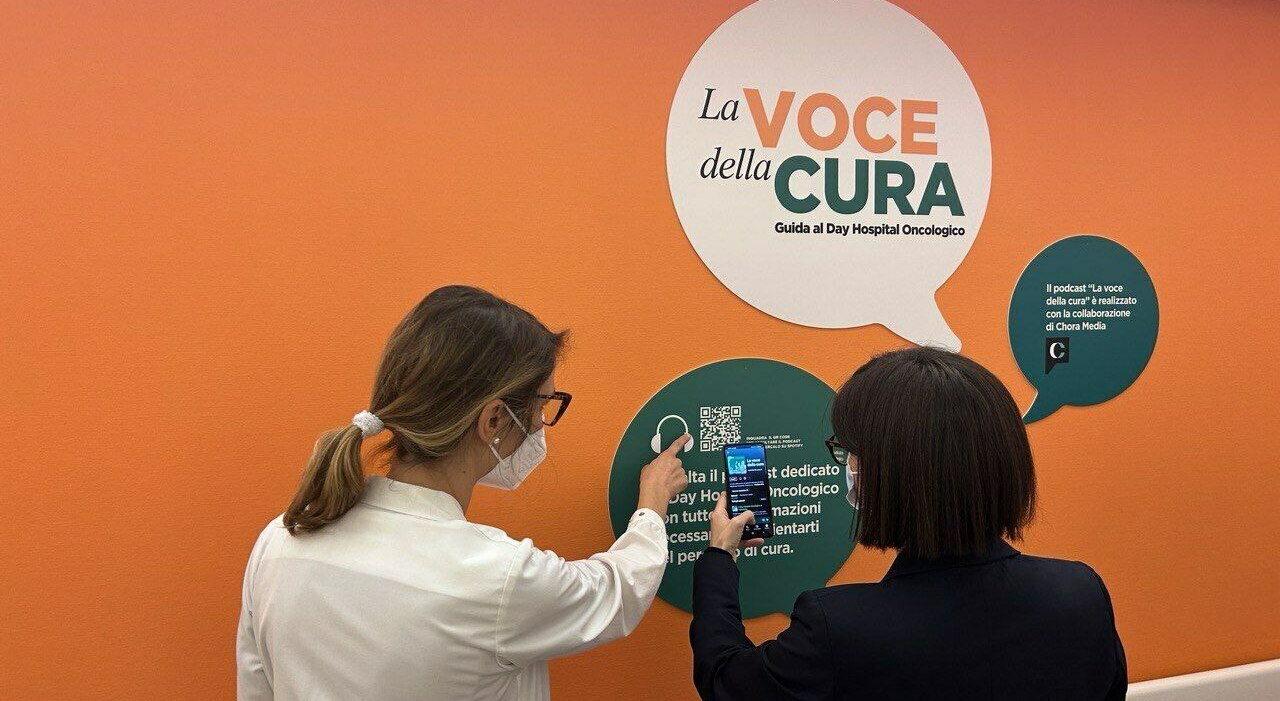A voice that accompanies patients who have to face the oncological day hospital, which holds their hand along the path against the disease, explaining to them, step by step, the stages of therapy: “The voice of healing is the podcast born from the collaboration between the Humanitas clinical institute and Chora Media, launched on the occasion of World Cancer Day tomorrow February 4th. There are 7,000 new patients welcomed every year by the Humanitas Cancer Center, based in Rozzano in the Milanese area, 7,000 new patients who often find themselves lost in the face of a cancer diagnosis: «Our mission is to take complete care of the needs of these people, – says prof. Armando Santoro, director of the Cancer Center -. Continuous updating of personnel and cutting-edge medical technologies are as fundamental as correct and complete information. For this purpose, the new communication tools can be a valid support that allows us to stay even closer to our patients”.
Podcast to tell the stories of Humanitas
Hence the choice, unique in Europe, to rely on an increasingly popular medium, the podcast: the 2,600 people who attend the Day Hospital of the Humantitas Cancer Center every year will simply need to scan the QR Codes on the walls of the ward to access the 10 episodes, which include topics such as entering the area, acceptance, blood tests, oncological visit, preparation of therapy in the pharmacy, administration, as well as insights into body and skin care, nutrition and possible side effects. “The voice of the cure” in fact aims to «answer the most common questions of people undergoing chemotherapy, immunotherapy, targeted therapy or a combination of these, – recalls prof. Paolo Zucali, Head of Oncological Day Hospital of Humanitas -. They are personalized therapies, in evolution, which are prepared for each session in the hospital pharmacy on the basis of the tests and the oncological visit, a process that takes a few hours and which, through the podcast, people will be able to discover more closely”.
Leading the listening of “The voice of the cure”, whose editorial care is entrusted to the writer Paolo Giordano, is Giulia Rocco (author together with Enrico Bergianti and Agnese Baini) with the support of 21 professionals from the Humanitas Cancer Center. «I believe that the voice can play a very important role, as a form of service, – explains the journalist Mario Calabresi, CEO and Editor in Chief of Chora Media. – A person who has received a cancer diagnosis asks himself many questions that sometimes arise when he is at home, perhaps at night or when returning from the hospital: being able to find those answers with the voice of the doctors, nurses, professionals he meets on the ward it can be very powerful in terms of intimacy and trust».
Answers that, thanks to platforms such as Spotify, are accessible at any time: “Leaflets are not always available, nor is it possible to call the doctor at any time of the day or night, while a smartphone is enough to listen to the podcast in any time», underlines Calabresi, who adds that “The voice of the cure” can also prove to be a useful tool for family members and friends of the sick: «We tried to understand what really interested the patients, what the most recurring questions were, to then work on the answers together with the people who work in the hospital so that they were understandable, but always of a high scientific level”. An extra help, all contemporary, therefore, to face a disease that recorded 390,700 new cases in 2022 (as highlighted by the report “The numbers of cancer in Italy 2022) and which sees a third of patients facing treatment right in day hospitals hospitallers.
